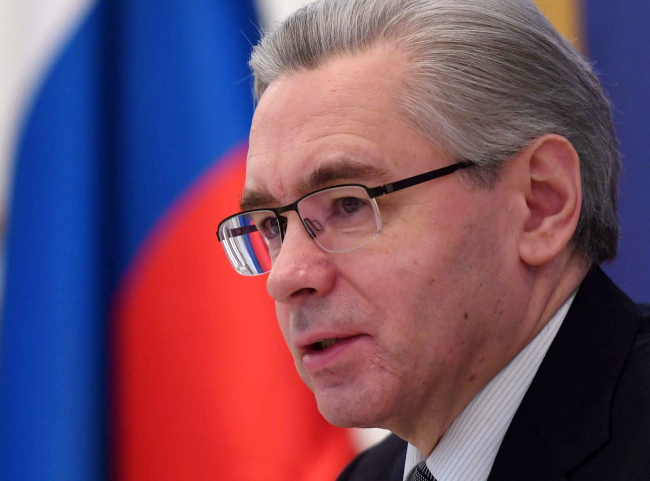Moscow will take steps to protect its national security if US missile defense assets are deployed here as planned, the Russian ambassador to South Korea said Friday, warning it will bring a “dangerous impact” to the peninsula and the region.
Alexander Timonin’s remarks came as the defense chiefs of South Korea and the US agreed during their talks in Seoul to complete the installment of the Terminal High Altitude Area Defense system as scheduled for this year. They stressed the equipment was “only designed to counter North Korea’s missile threats,” once again ditching the claim of China and Russia that it targets them.
 |
Alexander Timonin, Russian ambassador to South Korea, speaks in a press conference on Friday. Yonhap |
While offering an upbeat outlook for better ties with the US under President Donald Trump, Timonin was steadfast that Russia’s position to THAAD will remain “negative in any case.”
“If THAAD is indeed deployed, we would have no option but to reach a conclusion, taking certain steps to ensure our security,” the envoy said at a news conference.
“A THAAD deployment may have a dangerous impact on the situation on the peninsula or regional peace. … We regard it as part of the US’ global missile defense program, which is stationed along the Russian borders and therefore poses a threat to our security.”
Timonin refrained from elaborating on the measures Moscow may adopt in response to THAAD. But he did not shy away from displaying hopes for the plan’s withdrawal when the next administration takes power in Seoul, referring to recent polls and presidential candidates who are against it.
Wary of concerns over China’s escalating economic retaliation, the ambassador said Russia would not scale back economic cooperation with South Korea, saying “Don’t worry” in Korean.
“Economic cooperation between the two countries is no less important than the THAAD issue,” he said, pinning hopes for a free trade pact between Seoul and the Eurasian Economic Union.
On North Korea’s nuclear program, Timonin rejected the notion that Pyongyang is no longer willing to return to denuclearization negotiations, arguing the stalled six-party talks remain the “most effective, constructive” forum.
“As we reopen talks, all six countries present their positions and coordinate new strategies. Russia is ready to actively engage and propose our solution,” he said.
“Though there’s no interactions now between the two Korea due to the complex political situation, if dialogue is restarted and reinvigorates exchanges, it will bring a fresh momentum to the six-party talks.”
By Shin Hyon-hee (
heeshin@heraldcorp.com)








![[Today’s K-pop] Blackpink’s Jennie, Lisa invited to Coachella as solo acts](http://res.heraldm.com/phpwas/restmb_idxmake.php?idx=644&simg=/content/image/2024/11/21/20241121050099_0.jpg)